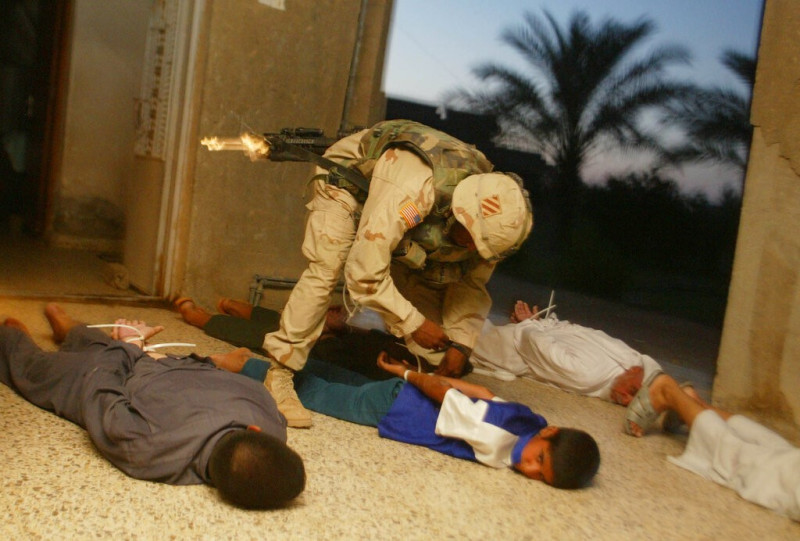As part of Operation Iraqi Freedom some 150,000 Americans and 40,000 British were deployed for a blitzkrieg operation in Iraq, in what turned out to be a futile, bloodbath.
Iraq today commemorates twenty years since the American invasion and the fall of Saddam Hussein, events that sparked bloody conflicts.
However, neither the federal government in Baghdad nor the Iraqi Kurdistan Regional Government have planned any events for today’s anniversary.
It all started on March 20, 2003. As part of Operation Iraqi Freedom approximately 150,000 Americans and 40,000 British troops were deployed for a blitzkrieg operation in Iraq.
With the tactic “shock and awe”, three weeks were enough to decide the fate of Saddam Hussein’s regime and capture Baghdad on April 9.
The declared goal of the government of the American president George W. Bush was the detection of weapons mass destruction that had Hussain. However these were never found.
Read in detail: The chronicle of the war in Iraq and the end of Saddam Hussein – Video, photos
The US invasion marked the beginning of one of the bloodiest periods in Iraq’s history, where a horrific civil war first broke out (2006-2008) and then the Islamic State jihadists overran much of the country and committed many brutalities.
From 2003 to 2011, the year the American forces withdrew, more than 100,000 civilians were killed in Iraqaccording to the organization Iraq Body Count.
The US announced almost 4,500 dead in their classes.
Today in Iraq there is a normalcy: elections are held regularly, pluralism in politics is encouraged, freedom of expression is guaranteed.
But negotiations to form a government after elections in October 2021 have dragged on for a year and been marred by episodes of unprecedented violence in Baghdad. The UN mission in Iraq last year denounced “an environment of fear and intimidation” that limits freedom of expression.
Despite the image of normality, Iraqis worry about their future.
Among the ills that plague the country are corruption — Iraq ranks 157th out of 180 countries on the NGO Transparency International’s list — leaders’ indifference, power struggles and the influence of neighboring Iran on Iraqi politics. policy.
Governments that came to power after 2003 “failed to fight corruption in health and public services,” complains Abbas Mohammed, a 30-year-old engineer from Baghdad. “We are going from bad to worse. No government has given anything to the people.”
In Iraq, an oil-rich country, a third of the population lives in poverty and public services are often absent.
Yesterday al-Sudani pledged once again to “fight against the corruption pandemic”.
But according to Mohammed al-Askari, a worker from Baghdad, Iraq still has a long way to go in this direction.
“We rejoiced when the (Saddam Hussein) regime collapsed because we thought Iraq would improve, but until today all we have done is suffer,” he emphasizes.
Source :Skai
With a wealth of experience honed over 4+ years in journalism, I bring a seasoned voice to the world of news. Currently, I work as a freelance writer and editor, always seeking new opportunities to tell compelling stories in the field of world news.











